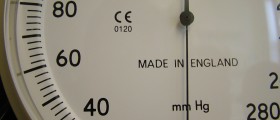What are Diuretics?
To put it simply, diuretics are medications that, when taken, eliminate the excess water in the body through urination. They are also known as water pills and there are three basic types of them: potassium-sparing, thiazides, and loop diuretics.
Why do People take Diuretics?
The main reason people take diuretics is to eliminate excess body fluids or water. Sometimes, due to different causes, there is an accumulation of excess water in the body, which manifests itself in different ways, one of them being edema. Edema is swelling of the tissues due to excess water accumulation.
People who suffer from certain heart conditions sometimes need to take diuretics. Excess water hampers the normal blood flow throughout the body and puts too much strain on the heart.
Diuretics are sometimes prescribed for people who have high blood pressure. When the amount of fluid in the bloodstream is reduced, the pressure is also reduced.
Water retention can occur for a number of reasons and medical conditions, like congestive heart failure, kidney disease and liver disease. In these cases, doctors prescribe diuretics along with other medications.
- Diuresis is necessary for a variety of non-edematous and edematous conditions, which require clearing out excess water when the body abnormally sequesters fluid in the third space in the form of edema.
- Diuretics, along with salt restriction, are also recommended as the first-line therapy in ascites due to liver cirrhosis. In cirrhotic ascites, spironolactone is the drug of choice for initial therapy (due to its antiandrogenic effect), although a loop diuretic may be added as an adjunct if the treatment fails or can be added at the outset in synergistic combination therapy.
- Thiazides are the best first choice for hypertension, as concluded in a recent Cochrane review, and chlorthalidone is the best first-line agent among all the anti-hypertensive compared according to the 2017 American college of cardiology (ACC) hypertension guidelines.
- Diuretics can also be employed less commonly in the active elimination of toxic substances by forced diuresis, which increases urine volume per unit time. Clinicians employ loop diuretics along with alkalinization of the urine in forced alkaline diuresis in the treatment of salicylate, phenobarbital, and lithium poisoning.
- Almost all diuretics act by targeting ion transport receptors present on the luminal surface in the renal tubules, except for ARAs, which act on cytosolic steroid receptors. All the diuretics are bound to albumin, and as glomerular filtration excludes macromolecules such as albumin, active secretion of diuretic agents into the lumen is a prerequisite for their action. ARAs reach the distal tubule via the blood and act on the mineralocorticoid receptor (MR) in the cytoplasm of the principal cells.
- Diuretic administration is usually via the oral route, but when maximum potency is required, such as in cases of advanced HF, it can be given intravenously in a hospital setting. In such situations, continuous infusion over a specified period is preferable to bolus injections. Adverse effects (or complications) in a particular patient should be well-anticipated, and the choice of diuretic, the dose required, route of administration, and needed clinical improvement, should all merit consideration before administering any diuretic agent.
- Severe dehydration or established anuria is a contraindication for any type of diuretic. Patients with known hypersensitivity to any of the diuretic agents are contraindicated to receive the same drug. Diuretics are contraindicated in severe electrolyte derangement and should not be administered until a detected electrolyte abnormality is corrected.
Some people take diuretics for the purpose of weight loss. Water makes up a large portion of body weight and naturally when it is expelled from the body the body weight is lower. This, however, is not an effective weight loss plan as it does not reduce the actual body mass or body fat.
Some athletes take diuretics not only to reduce their weight but also to wash out traces of anabolic steroids, which are illegal, so they cannot be noticed on tests.
Side Effects of Diuretics
Even though diuretics have their purpose, they also involve several side effects, especially if used too much and too often.
Using too many diuretics will not only eliminate excess water but will also hamper the normal levels of fluid in the body, potentially leading to dehydration, which is a very serious issue. Some of the side effects of diuretics include frequent urination, especially during the night, muscle cramps, excessive thirst, low blood pressure, arrhythmia, muscle weakness, fatigue, depression, anxiety, confusion, insomnia, nausea, vomiting, constipation, and, in severe cases, lethargy, seizures, and coma.
Diuretics should be taken only if a doctor prescribes them. Even then, they should be taken carefully, in prescribed dosages, otherwise, there is a serious risk of the side effects described above.
- medlineplus.gov/ency/patientinstructions/000112.htm
- www.nhs.uk/medicines/furosemide/
- Photo courtesy of Pawel Czerwinski by Unsplash: unsplash.com/photos/2Y8ol_OBS1I










-Uses%2C-Side-Effects-And-Risks_f_280x120.jpg)







Your thoughts on this
Loading...